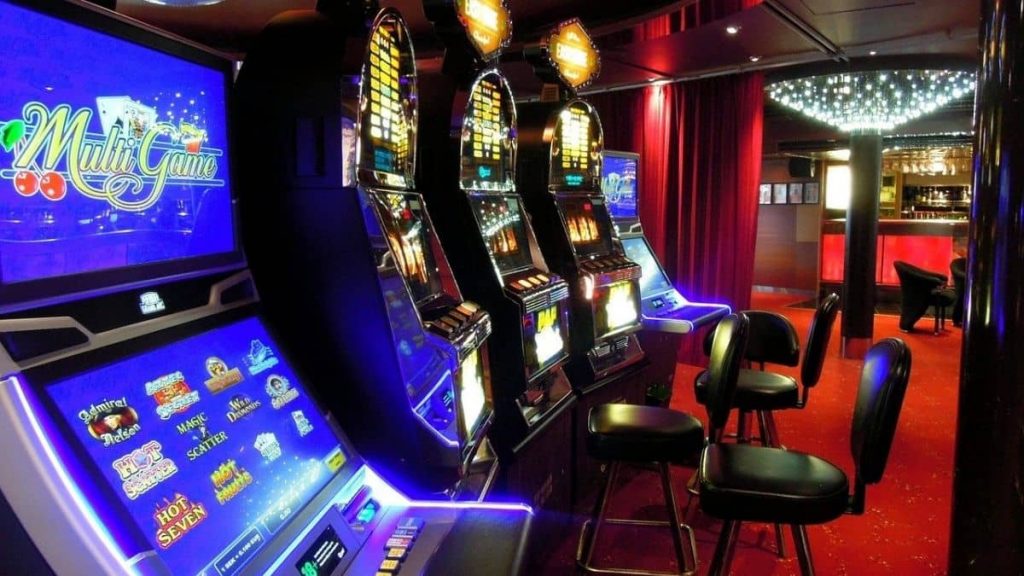Criminals are targeting the casino industry to conceal their revenues earned via illegal operations. For example, they are engaging in drug trafficking and human trafficking. Online poker money laundering is one of the numerous forms of money laundering that can occur in casinos.
Sometimes, criminals turned clean money into chips. Then, played it with for a brief time and then paid out in the form of a check. Another way to launder money is by creating several accounts. These crooks are using fraudulent identities. So, they can prevent tracing money laundering transactions in the casino.
That is why casinos must register with their financial intelligence unit. Then, establish an efficient anti-money laundering (AML) policy in many jurisdictions. Failure to do so can result in serious penalties.
What is money laundering?
Simply explained, money laundering is the process of taking money gained unlawfully. Then, makes it appear as though it was earned legitimately.
Criminals “clean” their money by concealing the source of the cash. This is through particular transactions, asset investments, and other acts. The ultimate result is money that seems to be lawful and may be utilized without suspicion.
The word comes from legendary gangster Al Capone. Al Capone loves to mask his unlawful riches as legitimate revenue. He does it by hiding his illegal money in the many laundromats he controlled.
Today, money laundering is an umbrella word for a variety of tactics of fooling the authorities about where the money comes from.
According to the United Nations, the amount of money laundered internationally in a single year is believed to be 2-5% of global GDP, or as much as $2 trillion.
Nonetheless, estimations should be viewed with care. This is because of their covert nature. Their precise statistics on the amount of money laundered globally each year are hard to acquire. Thus, they are merely designed to provide an approximation of the problem’s size.

How Does Online Poker Money Laundering Work?
Online poker money laundering has been around for centuries. However, money laundering become increasingly complicated. Despite that, there are only three fundamental phases to it: placement, layering, and integration.
Placement of Poker Money Laundering
The first step for crooks is to get filthy money and put it into the financial system. They are depositing the cash into a bank account owned by a company. It can be under a real company or a virtual company. Some are using a middleman to deposit their illegal money into the bank.
If not properly done, the authorities can catch these would-be launderers in this phase. This is because they appear suspicious when depositing big sums of money into these accounts out of nowhere.
Layering Online Poker Money Laundering
After successfully placing the “dirty money” into the bank, the launderers will then start covering up their trails. They hide their money by constructing multiple layers of financial transactions. By doing so, authorities cannot trace it back to its source.
This is when crooks cover up the trail and make online poker money laundering as difficult as possible to trace the dirty money.
In addition, they sent the funds to several bank accounts under different names and in other countries. Plus, they change the currency of their illegal funds, too. On the other hand, they are buying valuable assets like houses or vehicles to hide their illicit funds.
Integration of Dirty Money into Legitimate Financial System
These are the final steps that launderers must accomplish to successfully conceal their dirty money. Finally, they will reclaim their now-clean funds. They integrate them into the legitimate financial system.
Every aspect of this integration should look legal. Then, transfer the money to a newly formed company via a bank transfer or as a paycheck. After laundering, it is now difficult for law enforcement agencies to trace this illegal money. Thus, law enforcement will have a hard time proving these funds came from illicit conduct.

Using Casinos and Online Gambling Sites to Launder Money
It’s no secret that gambling has always attracted those who want to handle the proceeds of crime. In short, it is money laundering. Hence, the potential to be utilized as a vehicle for turning filthy money into untraceable, clean money will always exist.
Money laundering often occurs at live casinos. Wherein, crooks will transform their dirty money into chips and play it for a brief time. Then, paid out in the form of a cheque.
When players play and lose a little amount, they will then withdraw the money from their account. Then, have a receipt to produce to prove their ‘winnings’ on fixed-odds betting terminals (FOBTs).
Online Casino Money Laundering
Criminals are also laundering more money through online casinos. Money laundering is now simpler by massive quantities of money pouring through digital sportsbooks and online casinos every day.
One approach popular by money launderers is to deposit a substantial sum of money in a betting account. Then, the next put a few tiny fake bets for appearances’ sake, before draining the full account.
This method is especially tougher to detect if the crooks are patient enough to break their haul down into little pieces.
On the other hand, they can also open dozens of betting accounts. Then, they will deposit each account with amounts considerably below a certain threshold, which is likely to draw notice. After a short time, they will then withdraw all of their funds from that account.
Any paper trail will appear harmless and legal in these situations.
Furthermore, the FBI has stated that even regulated sites give the possibility to move enormous amounts of money in and out of other accounts.
Online Casinos and Sportsbooks: Vulnerability to Money Laundering
Hundreds of unregistered sites are established every day in this market. Some of them are hidden in countries with weak or non-existent monitoring systems.
On the other hand, law enforcement authorities are more committed than ever to battling crime by combating money laundering. Many of them have their sights set on betting companies.
But whatever controls the regulators and betting companies apply, the worldwide online gaming business is anticipated to be worth more than $92.9 billion in 2023. Because of this, eradicating money laundering remains a significant issue. Besides, the temptation for criminals to utilize it for that reason remains equally strong.
It may be difficult, but casino owners have a moral obligation to safeguard their consumers and keep criminals out of the gaming industry. Thus, they have to be dedicated to them, examine them periodically, and teach workers to screen clients and know what constitutes suspicious behavior.
Money Laundering on Sports Betting
Segregation is another technique to legitimate unlawful money from sports betting. Here, a player picks both bet possibilities. In circumstances where there is a binary decision, this is most effective.
You may wager on over 1.5 or under 1.5 goals in soccer games, for example. Simply put, you’ll wager $5,000 on the over 1.5 figure and $5,000 on the under 1.5 figure. Let’s suppose that the game concludes 1-0. That implies you’ll lose the $5,000 you staked on the 1.5-goal overrun.
Your profits from the $5,000 you spent on the under 1.5 targets, on the other hand, will make up at least a portion of that.
How money laundering in sports betting works?
Despite surrendering some money, the money launderer legalizes a major portion of their money by justifying the earnings obtained from the gaming firm as a consequence of the betting activity.
Because of the fast advancements in AI and machine learning, betting businesses now have the potential to include specific restrictions. Moreover, they are now using processes to detect suspicious behavior and so reduce the appeal of gaming to money launderers. This is important to notice. Nowadays, authorities are regulating the betting business more strictly, making sports betting less attractive for possible money laundering.
Red Flag Indicators of Unusual Transaction Activities and Characteristics

Be on the lookout for transactions that have odd features, like:
1. Oftentimes, a pair of bettors will typically cover both sides of an even bet, such as:
- On Roulette, they are betting both on “red and black” or “odd and even”;
- In Baccarat/Mini-Baccarat, they are betting both with and against the bank; or
- The pair of bettors are both betting on the “pass line” or “come line,” as well as “don’t pass line” and “don’t come line” in a game of Craps.
2. Both bettors’ overall wagering is more than $5,000 in total.
3. A consumer consistently bets both sides of the same line for sporting events, for example, is betting both teams to win. So, the amount of overall loss to the customer is small.
4. Be wary of customers that are requesting casino checks, each less than $3,000 in value. Be alert if they make the check payable to third parties or checks with no payee named.
5. Be on the lookout for a customer who submits a genuine form of an identity document, in conjunction with the completion of a CTRC, or the creation of a deposit, credit, or check-cashing account, which:
- Does not look like the client (for example, different age, height, eye color, or sex); or
- Is untrue or edited. For example, the address changed, photograph was substituted.
6. Also, watch out for a customer who presents information for the fulfillment of CTRCs on several gambling days that has contradicting identification information. For example,
- Incorrect address spelling or enumeration;
- A driver’s license number from a different state; or
- Different social security numbers.
Other suspicious behavior
- Be alert for a client who makes big deposits or pays off significant marks in quantities less than $3,000 using various instruments. Money orders, cashier’s checks, traveler’s checks, and foreign drafts are examples of this.
- Moreover, be on the lookout for a customer who withdraws a large sum of money from a deposit account, for example, $30,000 or more. Then, they request the casino to issue multiple checks, each worth less than $10,000.
- Furthermore, be alert for customer who organizes big money transfers out of the country. They paid it with many cashier’s checks from various banking institutions.
BitCoin’s Rise as a Financial Tool in Online Gambling

The introduction of digital banking and cryptocurrency has made transferring money rapidly and discreetly simpler than ever for criminals. Moreover, it also makes laundering one of the major crimes of our day.
The number of worldwide crypto users hit 221 million in June 2021, according to new research by Crypto.com.
It’s also simpler for criminals to launder money with cryptocurrencies because of their anonymity. In addition, it makes it even more difficult to track and collect statistics on crime levels.
Criminal activities accounted for about $450 million of the projected $21.4 billion in crypto transactions in 2019. This is according to research by the Basel Institute on Governance.
The exact value might be considerably higher but it is very hard to trace.
Cryptocurrencies will continue to expand in popularity and usage. So, it will be interesting to observe how governments seek to deter criminals from utilizing them to launder money.
Conclusion
Top live casinos in Singapore are fighting hard to make sure that money launderers won’t be successful. The existence of money laundering especially sports betting and online poker money laundering, in the online gaming sector is difficult to prove. However, there is enough evidence of it on the industry’s fringes to keep the topic alive.
While it may appear that asking if the convenience store business encourages illicit gambling, the sale of unlicensed tobacco goods and the sale of alcohol to minors is equally as important. Thus, authorities have yet to discuss employing regulation to manage the market.
They’re caught in a Prohibition-era mindset as if Elliot Ness and his gang only need to shut down a few speakeasies to put an end to all of this.
Prohibition was lifted when Al Capone was caught for tax evasion. In addition, barrel-busting police measures were shown to be unsuccessful against the public’s persistent need for backroom liquor. At the very least, the government may redirect some of the money for the greater good by taxing alcohol. That, of course, is the justification for state-run lotteries.
When citizens bet in someone else’s jurisdiction, the tax money is going to the wrong government. And it is not because gambling is unhealthy for children. Perhaps money laundering is a side effect of the larger issue of whose jurisdiction should be raking in the most money.




